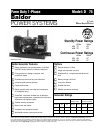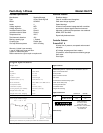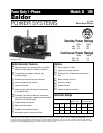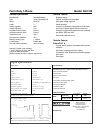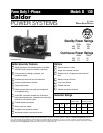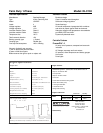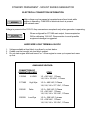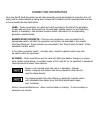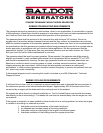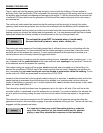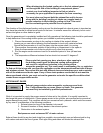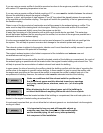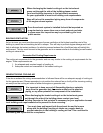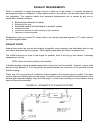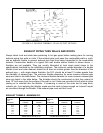
STANDBY PERMANENT MOUNT SERIES GENERATOR
GENERATOR MOUNTING REQUIREMENTS
The generator set must be secured to a solid surface, which is non-combustible. A concrete floor is typical
of this application. Wood floors should be prepared in accordance with local and state requirements for the
load, heat and fluids that will be encountered with operation of this generator set.
This generator base shall be anchored to the concrete floor with minimum 3/8" anchors. We do not
suggest use of secondary isolators between the base and the floor surface, as durometers vary and may
affect the isolation properties of the standard generator mounts. Please note that it is not recommended by
the manufacturer that this generator be operated without being permanently mounted to a concrete slab or
similar application in accordance with your local and state regulations. We also recommend that the
generator be located 3 to 5 feet away from any permanent structure such as walls, bushes, etc. Check
with your local city hall for official requirements in your area.
The generator should be level for proper operation. When mounted, the generator should be properly
aligned and located in a well-ventilated place where the air temperature will not exceed 40
O
C or 104
O
F,
and should be accessible for cleaning. An open type generator should not be located where there are
abrasive or conductive dusts, corrosive gasses or fumes, or where excessive moisture, standing or
dripping water may be encountered. Limit dust and dirt accumulation and assure a rodent-proof
environment. A totally enclosed generator should be cleaned frequently to remove accumulated dust and
dirt , which may cause overheating.
A dimensional diagram to aid in mounting this model is included in your Bill of Materials / Technical
Diagrams Packet.
ENGINE COOLING REQUIREMENTS
A sufficient flow of clean, cool air is required to support combustion and to dissipate the heat produced in
the combustion process of an internal combustion engine. Approximately 60% of the heat value of fuel
consumed by an engine will be disbursed to the cooling air and to the exhaust.
All engines are either directly or indirectly cooled by air. The Air-Cooled Engine must transfer the excess
heat directly to the air surrounding it. The heated air must then be directed away from the engine so it will
not overheat.
If the engine is situated in an open installation there should not be a cooling problem, but when the engine
is installed in a building it is essential to provide:
1. Adequate control and evacuation of the heated cooling air.
2. An adequate and constant supply of incoming cooling air.
3. Adequate control and discharge of the engine's hot exhaust gases.
4. Adequate ventilation of the building when the engine shuts down.



